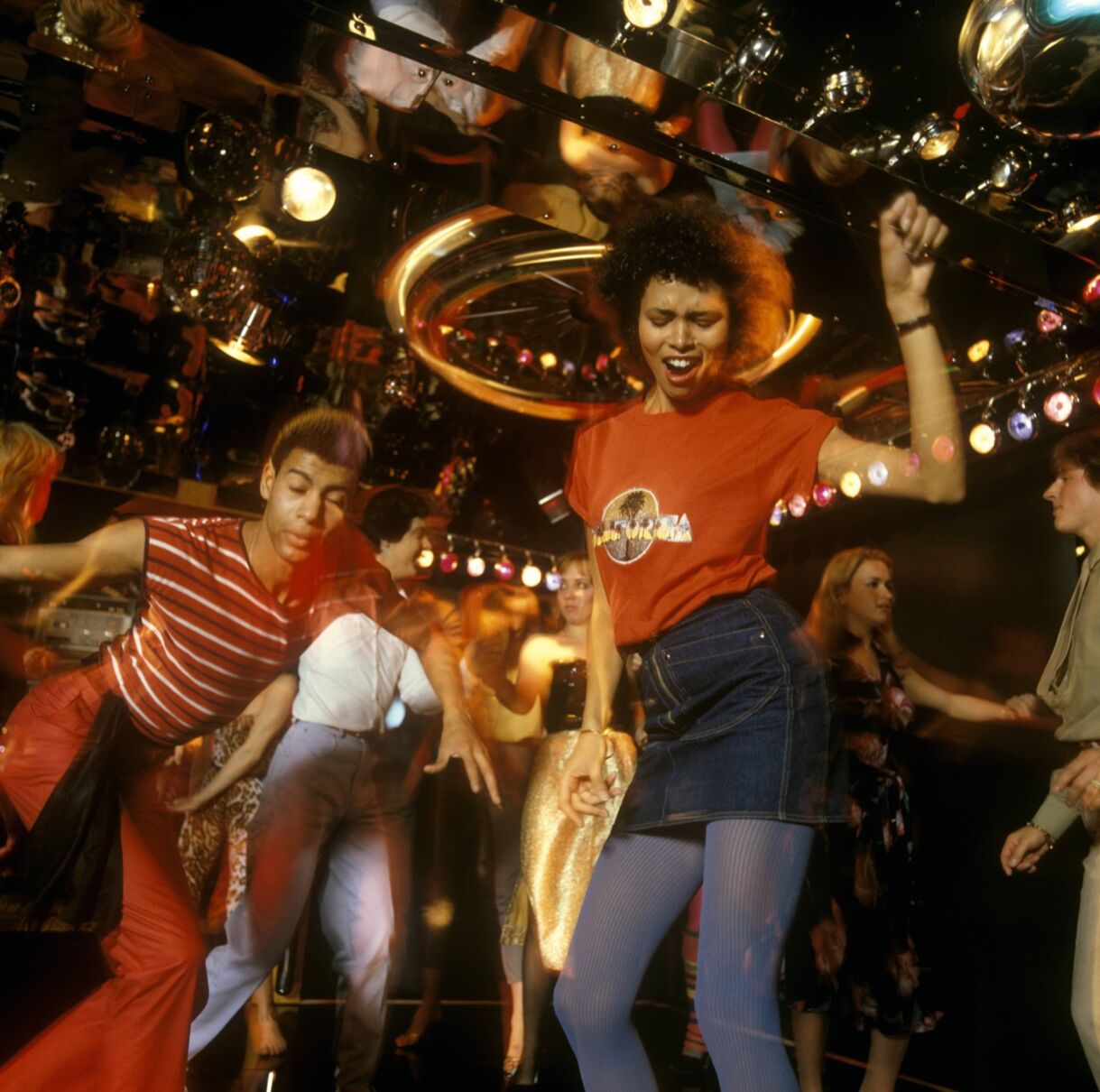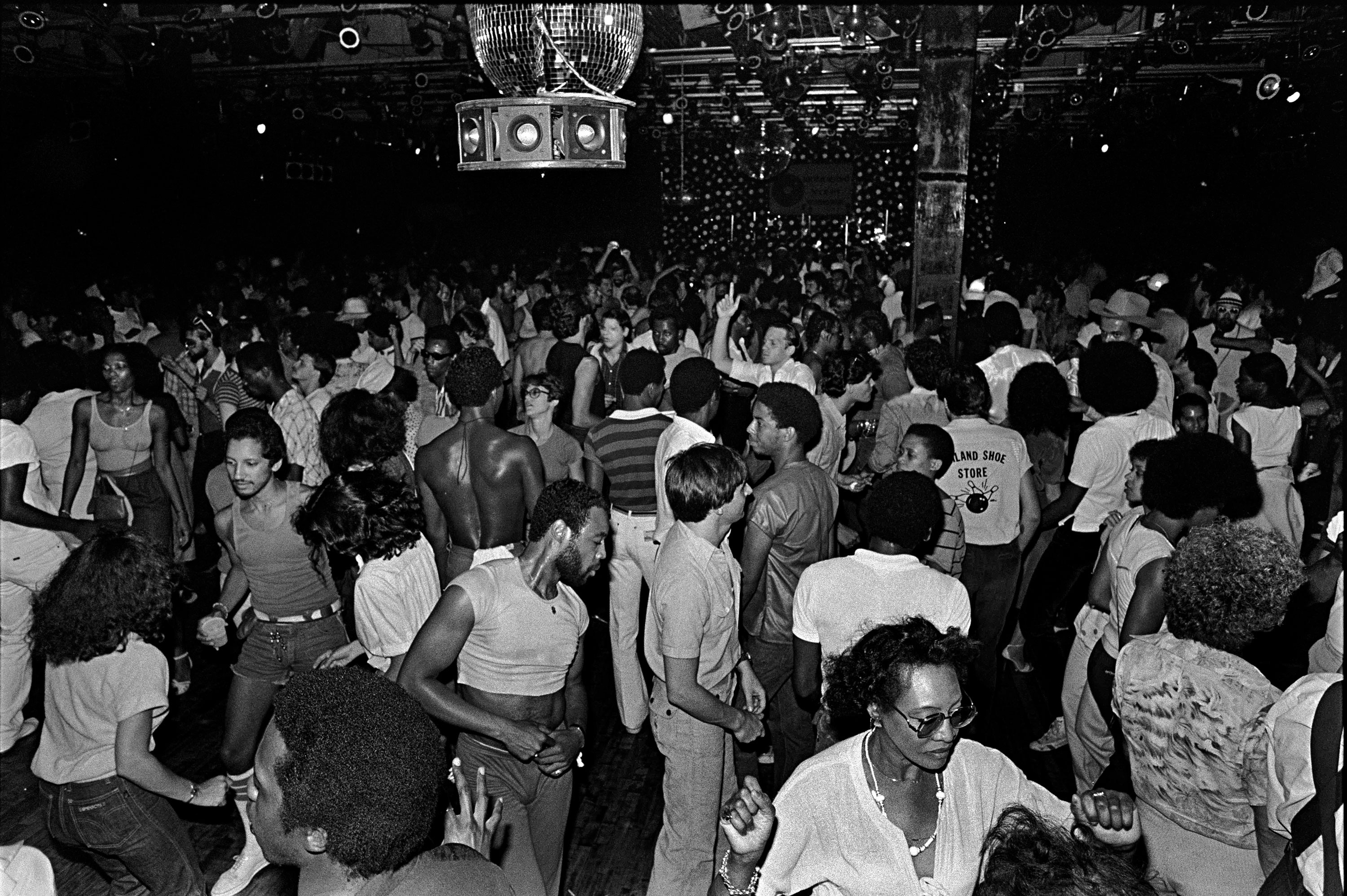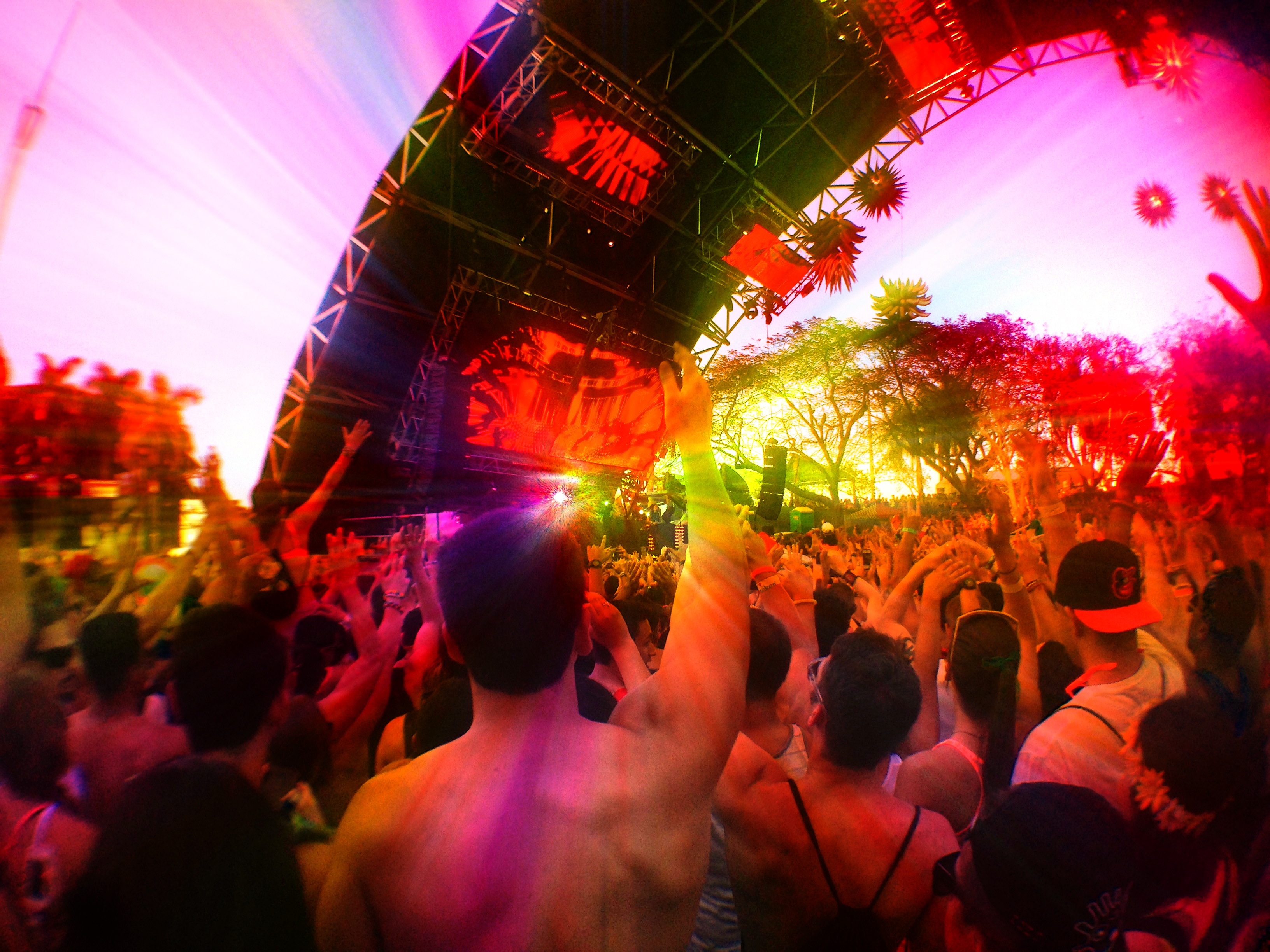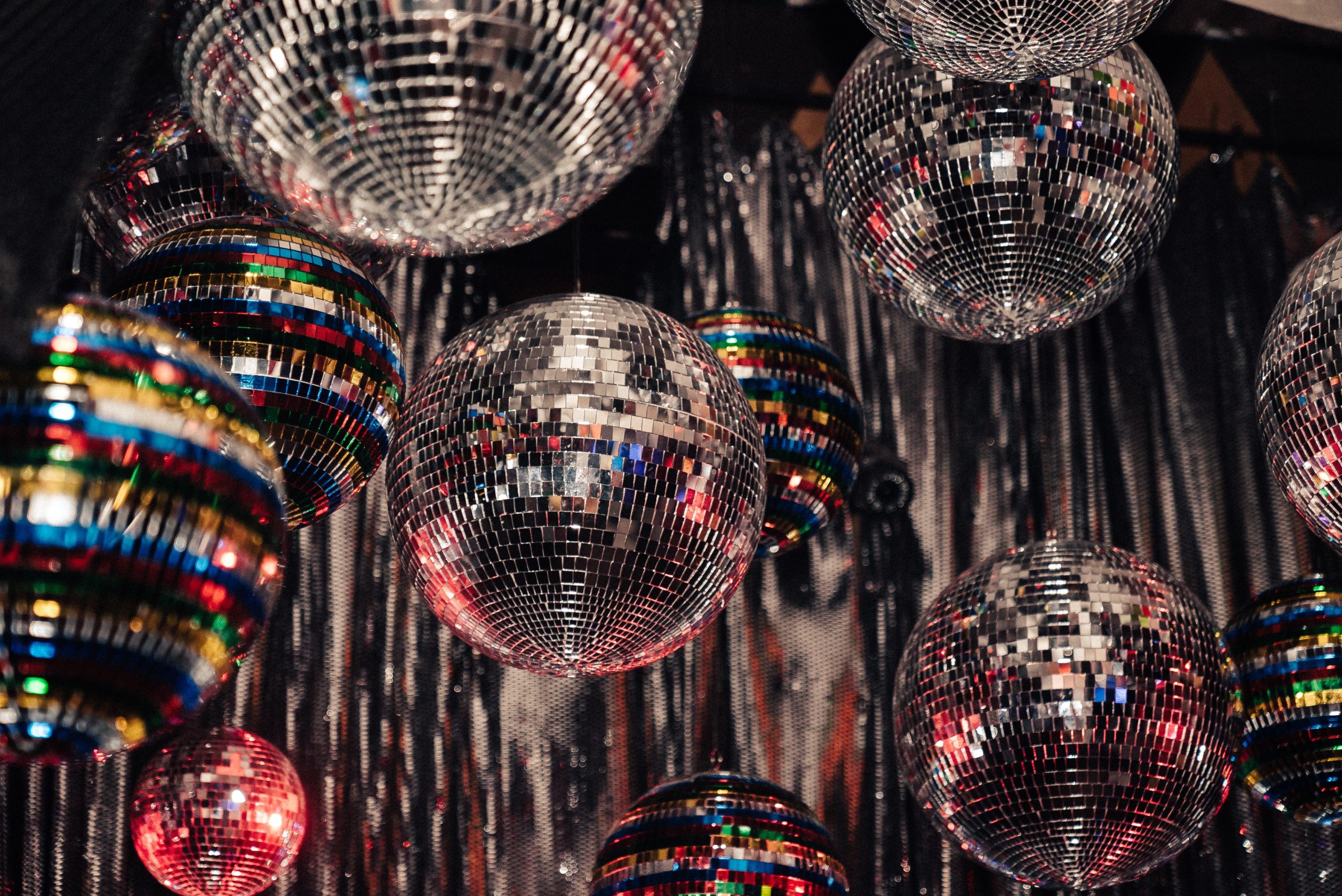The Evolution of Dance, Music, and Culture in Disco: An Exploration

The Photographers Who Captured the Flashy, Feverish Nights of Disco | Artsy - Source www.artsy.net
Editor's Notes: "Disco: The Evolution of Dance, Music, and Culture" has been published today, delving into the captivating history and cultural impact of this iconic music genre. Given its significant role in shaping nightlife, music, and dance culture, this topic holds immense relevance for enthusiasts and scholars alike.
Through extensive analysis and research, this definitive guide provides a comprehensive overview of Disco's evolution, tracing its origins to the 1970s and examining its enduring influence on contemporary society.
Key Takeaways:
| Element | Contribution |
|---|---|
| Dance | Introduced innovative moves and styles that revolutionized club culture. |
| Music | Combined elements of soul, funk, and pop, creating a vibrant and upbeat sound. |
| Culture | Embraced diversity, inclusivity, and self-expression, becoming a symbol of the disco era. |
Main Article Topics:
FAQ
This section provides answers to frequently asked questions regarding the evolution of disco, its music, and its cultural impact.
Question 1: What are the key characteristics of disco music?
Disco music is characterized by a 4/4 beat, syncopated basslines, strings and horns, and a tempo typically ranging from 110 to 130 beats per minute.
Question 2: What factors contributed to the rise of disco in the 1970s?
The rise of disco can be attributed to a combination of factors, including the post-Vietnam War economic boom, the emergence of new technologies such as synthesizers and drum machines, and a growing sense of cultural liberation.
Question 3: How did disco influence fashion and popular culture?
Disco had a significant impact on fashion, with flared pants, platform shoes, and metallic clothing becoming popular. It also influenced popular culture, with films such as "Saturday Night Fever" and "Thank God It's Friday" showcasing the disco lifestyle.
Question 4: What was the backlash against disco in the late 1970s?
Disco faced a backlash in the late 1970s due to factors such as its association with commercialism, its perceived lack of musical depth, and the rise of punk and new wave music.
Question 5: How has disco influenced subsequent music genres?
Disco has had a lasting influence on subsequent music genres, including house, techno, and hip-hop. Its rhythmic elements, melodic structures, and production techniques have been adopted by artists in various musical styles.
Question 6: What is the legacy of disco today?
Disco continues to be celebrated and remembered as a vibrant and influential era in music and culture. Its impact can be seen in contemporary music, fashion, and popular culture, demonstrating its enduring legacy.
This concludes the FAQ section on disco: its evolution, music, and cultural impact.
Tips
Whether your goal is to learn more about Disco: The Evolution Of Dance, Music, And Culture, incorporate disco elements into your own work, or simply appreciate the genre's enduring influence, these tips will provide valuable guidance.
Tip 1: Immerse Yourself in the Music:
Listen to a wide range of disco music to develop a comprehensive understanding of its diverse styles and subgenres. Pay attention to the evolution of the genre over time, from its early roots in funk and soul to its more experimental and electronic later iterations.
Study the Dance Moves:
Disco dance is characterized by its unique and energetic movements. Learn the basic steps, such as the hustle, the bump, and the cha-cha, and practice them regularly to improve your coordination and rhythm.
Explore the Cultural Context:
Disco emerged during a time of social and cultural change. Research the political, economic, and social factors that influenced the genre's development. This will provide insight into its underlying themes and messages.
Analyze the Fashion and Style:
Disco fashion is synonymous with glitter, sequins, and bold colors. Examine the evolution of disco clothing and hairstyles, and consider how they reflected the societal attitudes of the era. This exploration can provide valuable inspiration for your own creative work.
Attend Live Performances or Events:
Experiencing disco live allows you to witness the genre's energy and spectacle firsthand. Attend concerts, dance parties, or retro-themed events to immerse yourself in the full disco experience.
These tips will help you deepen your understanding of disco and its impact on music, dance, and culture. By embracing these insights, you can appreciate the genre's enduring legacy and incorporate its elements into your own work.
As you explore the world of disco, remember that its spirit is all about embracing individuality, self-expression, and the joy of the dance. By following these tips, you can step into the glittering world of disco and experience its timeless appeal.
Disco: The Evolution Of Dance, Music, And Culture
Disco emerged as a cultural phenomenon that profoundly reshaped dance, music, and fashion. Its distinctive characteristics, including pulsating rhythms, flamboyant outfits, and an atmosphere of liberation, left an indelible mark on popular culture.

Pictures from the New York Disco scene (1979-1980) by Bill Berstein - Source www.musicismysanctuary.com
- Dance: Discotheques became havens for free-spirited dancing, fostering new moves and styles.
- Music: Disco music's infectious four-on-the-floor beats and synth-heavy melodies created an irresistible dance experience.
- Fashion: Disco fashion embraced vibrant colors, metallics, and shimmering fabrics, reflecting the era's glamour and exuberance.
- Culture: The discotheque environment fostered a sense of community, breaking down social barriers and promoting inclusivity.
- Social Impact: Disco played a significant role in the LGBTQ+ rights movement, providing a safe space for expression and acceptance.
- Legacy: Disco's influence continues to be felt in various forms of dance, music, and fashion, shaping contemporary culture.
Disco's evolution exemplified the interconnectedness of dance, music, and culture. Its pulsating rhythms inspired new dance moves, while its flamboyant fashion reflected the era's celebration of individuality and freedom. Discotheques became more than just dance clubs; they were social hubs that fostered a sense of community and inclusivity. The legacy of disco endures, with its iconic music and dance styles continuing to inspire artists and audiences alike.

Preview and Download Wallpaper - HD Wallpapers - Desktop Background Images - Source wallup.net
"Disco: The Evolution Of Dance, Music, And Culture"- The era of disco music and culture emerged in the mid-1970s, leaving an indelible mark on the world of entertainment and fashion. Disco emerged in New York City's marginalized communities and flourished in gay nightclubs, where it served as a haven and a platform for self-expression.
Editor's Note: "Disco: The Evolution Of Dance, Music, And Culture" was published on June 29, 2023. Disco music has gained immense popularity over the years, influencing various aspects of dance, fashion, and culture. Its evolution has been marked by significant milestones, making it an intriguing topic to explore.
Through extensive research and analysis, we have compiled this comprehensive guide to provide an in-depth understanding of "Disco: The Evolution Of Dance, Music, And Culture." This guide will delve into the origins, key characteristics, and cultural impact of disco, exploring its influence on music, fashion, and the social landscape of the era.
Key Differences or Key Takeaways
Disco music is characterized by its repetitive four-on-the-floor beat, syncopated rhythms, and melodic basslines. Its lyrics often focus on themes of love, romance, and escapism.
Disco was a popular genre of music that emerged in the mid-1970s and peaked in the late 1970s. Disco music is characterized by its repetitive four-on-the-floor beat, syncopated rhythms, and melodic basslines. Its lyrics often focus on themes of love, romance, and escapism.
The disco era was a time of great cultural change. Disco music and culture influenced fashion, art, and even politics. It was a time of liberation and self-expression, and disco became a symbol of the era.
Disco's influence can still be seen today in music, fashion, and culture. It is a genre that continues to inspire and entertain people all over the world.
FAQ
This comprehensive guide delves into the rich tapestry of disco culture, tracing its evolution from its inception to its profound influence on music, dance, and fashion. Here we present a series of frequently asked questions to clarify common misconceptions and provide deeper insights into this iconic movement.
Question 1: What defines the origins and key characteristics of disco music?
Disco music, which emerged in the 1970s, is characterized by its infectious four-on-the-floor beat, prominent basslines, and lush orchestration. It originated in the African American and Latino communities of New York City, drawing inspiration from various musical genres such as soul, funk, R&B, and salsa. This fusion created a unique and energetic sound that captivated dance floors worldwide.

The Bro-ification of Dance Music | HuffPost Voices - Source www.huffpost.com
Question 2: How did disco influence the evolution of dance styles?
Disco's rhythmic pulse and high-energy beats fostered a new era of expressive dance. Dancers incorporated intricate footwork, acrobatic moves, and synchronized routines, showcasing their creativity and athleticism. This emergence of elaborate dance styles, influenced by jazz, ballet, and modern dance, became synonymous with the disco era.
Question 3: What factors contributed to the decline of disco's popularity?
While disco reached its peak in the late 1970s, its popularity waned in the early 1980s due to various factors. Overexposure and commercialization led to a perception of disco as formulaic and superficial. Backlash from rock music proponents and the rise of new genres such as punk and new wave further contributed to disco's decline.
Question 4: How did disco's legacy endure and shape subsequent musical genres?
Despite its decline, disco's influence continued to resonate in subsequent musical genres. Its rhythmic elements and production techniques became fundamental in the development of electronic dance music (EDM), house, and techno. The genre's emphasis on escapism and celebration continues to inspire artists and evoke a sense of nostalgia among fans.
Question 5: What is the cultural significance of disco's flamboyant fashion and aesthetics?
Disco culture embraced a flamboyant and distinctive aesthetic that reflected its celebratory spirit. Sequinned outfits, platform shoes, and glitter became defining elements of the disco fashion scene. These bold and expressive styles challenged societal norms and symbolized the freedom and self-expression that were central to the disco movement.
Question 6: How does disco continue to influence contemporary popular culture?
Disco's impact remains evident in various aspects of contemporary popular culture. Its music is frequently sampled and remixed by modern artists, while its dance moves and fashion trends continue to inspire music videos, television shows, and even runway collections. Disco's legacy as a symbol of liberation and celebration continues to resonate and inspire, ensuring its enduring relevance.
In conclusion, disco's evolution as a musical, dance, and cultural phenomenon is a testament to its enduring power to captivate and inspire. Its influence extends far beyond its decade-long peak, as its rhythmic pulse, flamboyant aesthetics, and celebratory spirit continue to resonate in various forms of art and entertainment.
Transition to the next article section
Tips
Disco: The Evolution Of Dance, Music, And Culture revolutionized popular culture in the 1970s, leaving a lasting legacy in music, dance, and fashion. Here are some tips for embracing the disco spirit and enjoying its timeless appeal:

Music History Monday: Disco Inferno! | Robert Greenberg | Speaker - Source robertgreenbergmusic.com
Tip 1: Dance with abandon: Disco music is all about letting loose and moving your body. Embrace the four-on-the-floor beat and dance with freedom and expression.
Tip 2: Dress to impress: Disco fashion was known for its flamboyant and sparkly outfits. Don sequined jumpsuits, platform shoes, and shimmering fabrics to make a statement on the dance floor.
Tip 3: Listen to the classics: Rediscover the iconic disco tracks that defined the era, from Donna Summer's "I Feel Love" to the Bee Gees' "Stayin' Alive."
Tip 4: Create a disco atmosphere: Set up a disco ball, turn up the music, and invite friends over for a dance party that will bring the 1970s to life.
Tip 5: Learn the basic disco dance steps: Master the four-step, the grapevine, and the box step to elevate your disco dancing skills.
By following these tips, you can immerse yourself in the vibrant and infectious world of disco, experiencing its enduring power and transporting yourself to a musical era that continues to inspire.
Conclusion: Disco may have faded from the mainstream, but its influence can still be felt in modern music, dance, and fashion. By embracing these tips, you can tap into the disco spirit and create a joyful and unforgettable experience.
Disco: The Evolution Of Dance, Music, And Culture
Disco, a cultural phenomenon of the 1970s, revolutionized dance, music, and fashion. Its influence continues to shape popular culture today. Key aspects of disco's evolution include:
These aspects intertwined to create a dynamic and influential movement. Disco's rhythmic beats and infectious energy made it a global dance phenomenon, while its soulful vocals and uplifting lyrics resonated deeply with audiences. The fashion and culture of disco reflected the era's desire for self-expression and escapism. Today, disco continues to inspire musicians, dancers, and fashion designers, demonstrating its enduring impact on popular culture.

1970s Disco: Dancing through the Decades - Dance Poise - Source dancepoise.com
Disco: The Evolution Of Dance, Music, And Culture
"Disco: The Evolution Of Dance, Music, And Culture" delves into the complex origins and transformative impact of disco, a genre that emerged in the 1970s and left an indelible mark on global culture. The book examines the interplay between music, dance, fashion, and social change, tracing the evolution of disco from its roots in African-American and Latinx communities to its mainstream popularity and eventual commercialization.

TheSocialTalks - The Evolution Of Music Culture Over Generations - Source thesocialtalks.com
The book highlights the role of disco as a catalyst for social and cultural change. It argues that disco's emphasis on inclusivity and self-expression created a space for marginalized communities to express themselves and find acceptance. Disco also challenged traditional gender roles, with women taking on more prominent roles as DJs and performers. Moreover, the book explores the cultural significance of disco's iconic fashion, which reflected the era's embrace of glamour and excess.
"Disco: The Evolution Of Dance, Music, And Culture" offers a comprehensive and nuanced understanding of disco's multifaceted legacy. By analyzing the genre's music, dance, and cultural impact, the book provides valuable insights into the transformative power of popular culture and its ability to shape social and cultural norms.
| Element | Significance |
|---|---|
| Music | Disco's infectious rhythms and catchy melodies created a unique soundscape that appealed to a wide audience. |
| Dance | Disco's distinctive dance moves, such as the Hustle and the Bump, became symbols of the era's free-spiritedness and hedonism. |
| Fashion | Disco fashion embraced glamour and excess, with flared pants, metallic fabrics, and glittering accessories becoming synonymous with the genre. |
| Social Impact | Disco created a space for inclusivity and self-expression, allowing marginalized communities to feel accepted and celebrated. |
| Cultural Legacy | Disco's influence continues to be felt in popular music, dance, and fashion, shaping the cultural landscape of subsequent decades. |